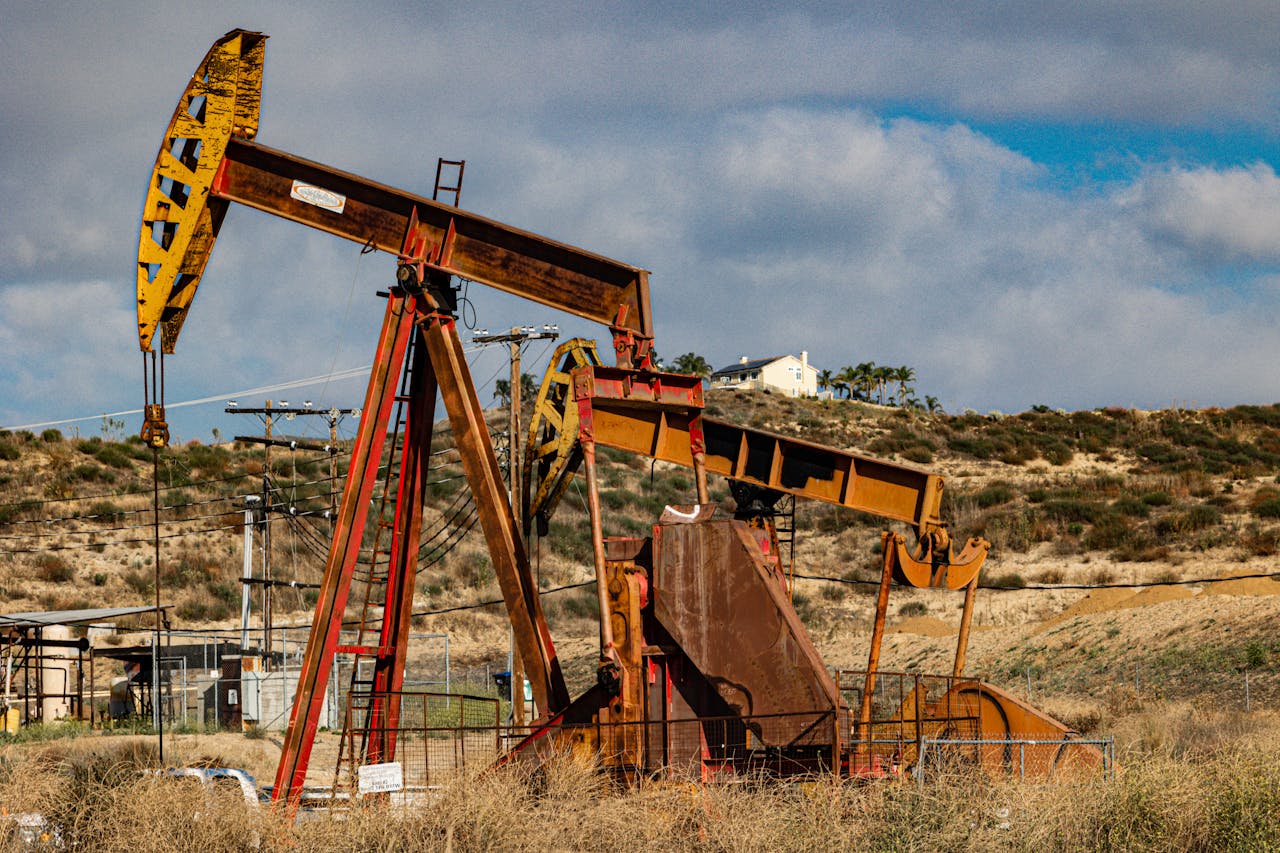Oil prices jumped over 2% on Tuesday as escalating Iran-Israel conflict stoked fears of supply disruption in the Middle East. Brent crude rose $1.17, or 1.6%, to $74.40 a barrel, while U.S. West Texas Intermediate (WTI) crude climbed $1.34, or 1.87%, to $73.11 by 0005 GMT. Both benchmarks had earlier surged more than 2% in intraday trading.
The spike followed a sharp reversal from Monday’s losses, when oil dropped over 1% on hopes of de-escalation after reports that Iran was seeking peace. However, tensions soared again as explosions and air defense activity were reported in Tehran, and Israeli air raid sirens sounded in Tel Aviv amid Iranian missile attacks.
Former U.S. President Donald Trump called for "everyone" to evacuate Tehran, further fueling market anxiety. Trump also criticized Iran for not signing a nuclear agreement sooner and suggested the country now seeks to reach a deal. Analysts believe any future deal that lifts U.S. sanctions could lead to increased Iranian oil exports, which might put downward pressure on prices.
Iran, OPEC’s third-largest oil producer, plays a critical role in global supply. Ongoing hostilities pose a serious threat to output, adding risk premiums to crude prices.
Meanwhile, OPEC and allies including Russia, collectively known as OPEC+, stated they expect the global economy to remain resilient in the latter half of 2025. However, they slightly reduced their forecast for oil production growth from non-OPEC+ countries through 2026.
With geopolitical risks rising and market volatility high, oil traders are closely monitoring developments in the Middle East, especially concerning Iran’s export capacity and potential diplomatic breakthroughs.



 Asia Stocks Slip, Gold Gains as Trump Weighs U.S. Strike on Iran
Asia Stocks Slip, Gold Gains as Trump Weighs U.S. Strike on Iran  Bank of England Likely to Hold Rates Amid Inflation and Energy Concerns
Bank of England Likely to Hold Rates Amid Inflation and Energy Concerns  Fed Holds Rates Steady Amid Inflation Worries from Trump Tariffs
Fed Holds Rates Steady Amid Inflation Worries from Trump Tariffs  Gold Prices Hold Steady Amid Middle East Tensions and Fed Rate Decision Focus
Gold Prices Hold Steady Amid Middle East Tensions and Fed Rate Decision Focus  Bank of Japan Eyes Slower Bond Tapering Amid Inflation, Global Risks
Bank of Japan Eyes Slower Bond Tapering Amid Inflation, Global Risks  Asian Currencies Steady Amid Fed Uncertainty and Israel-Iran Conflict
Asian Currencies Steady Amid Fed Uncertainty and Israel-Iran Conflict  Brazil Surprises Markets with Rate Hike to 15% Amid Inflation Concerns
Brazil Surprises Markets with Rate Hike to 15% Amid Inflation Concerns  Fed Holds Rates Steady, Signals Slower Cuts Amid Market, Geopolitical Tensions
Fed Holds Rates Steady, Signals Slower Cuts Amid Market, Geopolitical Tensions  Dollar Gains on Safe-Haven Demand Amid Middle East Tensions and Fed Caution
Dollar Gains on Safe-Haven Demand Amid Middle East Tensions and Fed Caution  Asian Markets Mixed as Geopolitical Tensions Rise, Nikkei Hits 4-Month High
Asian Markets Mixed as Geopolitical Tensions Rise, Nikkei Hits 4-Month High  SNB Flags Global Risks, Urges Stronger UBS Oversight Amid Economic Uncertainty
SNB Flags Global Risks, Urges Stronger UBS Oversight Amid Economic Uncertainty  New Zealand GDP Beats Forecasts, Slows Rate Cut Expectations
New Zealand GDP Beats Forecasts, Slows Rate Cut Expectations  Russia Risks Economic Slowdown Amid High Interest Rates, Warns Sberbank Executive
Russia Risks Economic Slowdown Amid High Interest Rates, Warns Sberbank Executive  Oil Prices Rise Amid Iran-Israel Conflict and Fed Rate Speculation
Oil Prices Rise Amid Iran-Israel Conflict and Fed Rate Speculation  Japan's Business Confidence Wanes Amid U.S. Tariffs, China Slowdown
Japan's Business Confidence Wanes Amid U.S. Tariffs, China Slowdown  Asian Stocks Dip Amid Iran-Israel Tensions, BOJ Decision in Focus
Asian Stocks Dip Amid Iran-Israel Tensions, BOJ Decision in Focus  Dollar Strengthens Amid Middle East Tensions and Fed Rate Uncertainty
Dollar Strengthens Amid Middle East Tensions and Fed Rate Uncertainty 































